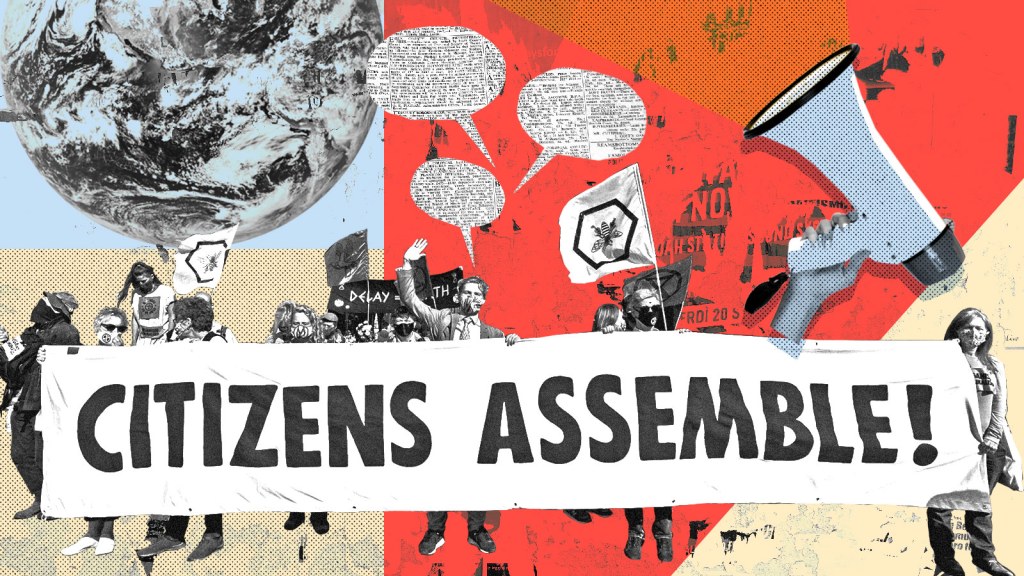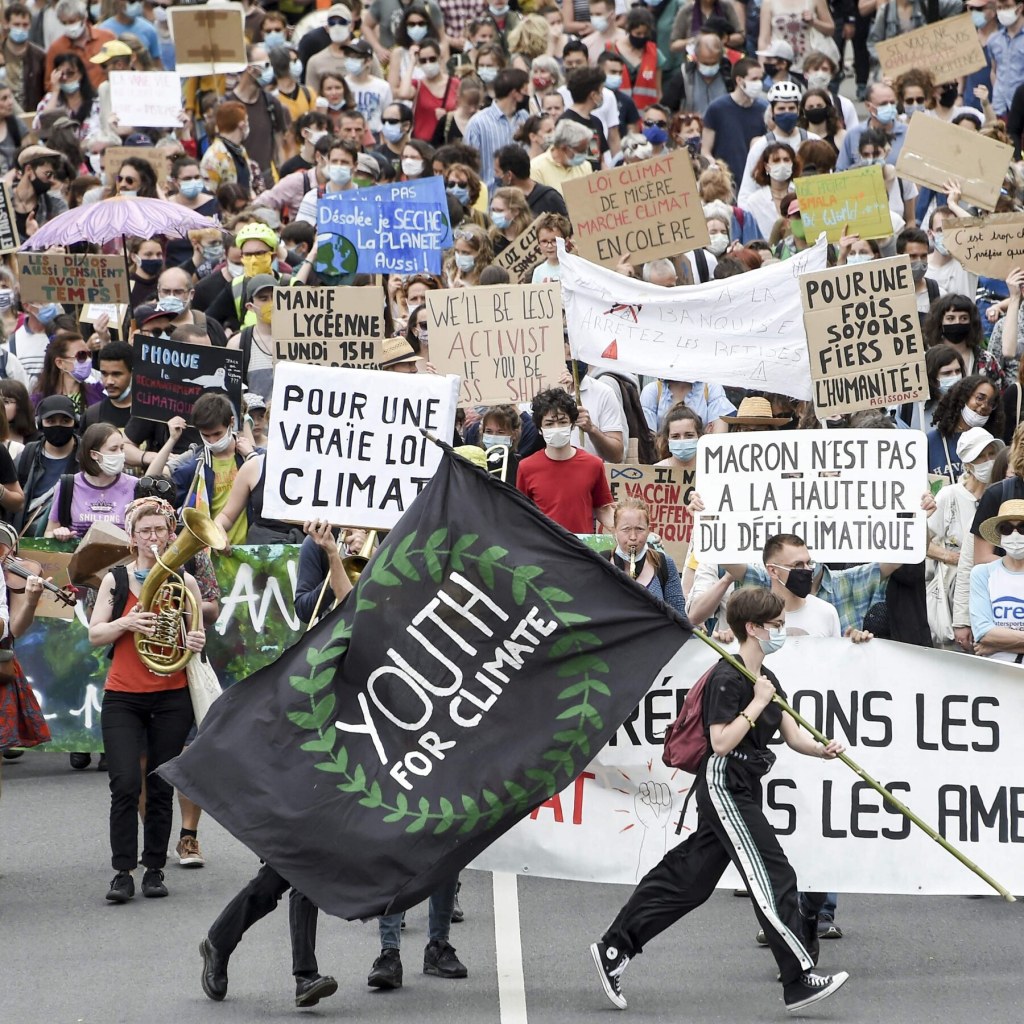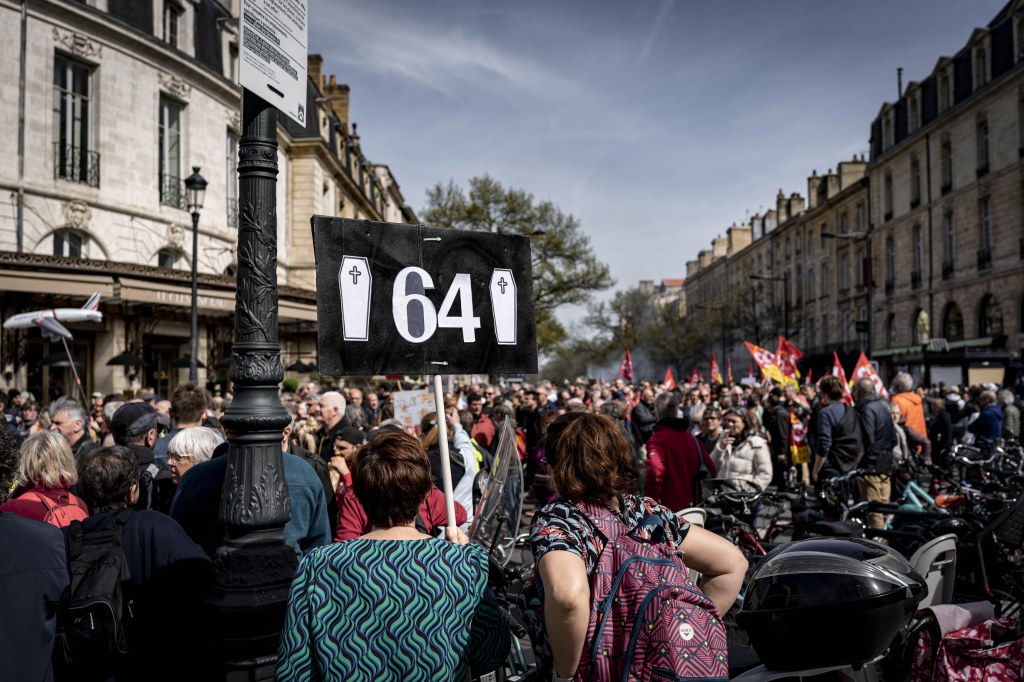The French Political Climate: A Comprehensive Overview
Greetings, Readers! Today, we delve into the fascinating world of French politics, exploring the intricate dynamics and significant developments that shape the country’s political climate. From the historical foundations to the current state of affairs, this article aims to provide you with a comprehensive understanding of the French political landscape. So, let us embark on this enlightening journey together!
Introduction: Understanding French Politics
1️⃣ France, renowned for its rich cultural heritage and influential role on the global stage, boasts a complex and vibrant political landscape. The French political climate is characterized by a multiparty system, parliamentary democracy, and a semi-presidential system of government. In this introductory section, we will explore the key elements that define and shape the political framework in this European nation.
2️⃣ The French political system traces its roots back to the French Revolution of 1789. This revolutionary period witnessed the overthrow of the monarchy, the establishment of a constitutional monarchy, and eventually the rise of the First French Republic. The principles of liberty, equality, and fraternity that emerged during this era continue to influence French politics to this day.
3️⃣ France operates under a semi-presidential system, which means that power is shared between the President and the Prime Minister. The President, directly elected by the people, serves as the head of state and is responsible for foreign policy, defense, and ensuring the functioning of institutions. The Prime Minister, appointed by the President, heads the government and is responsible for domestic affairs.
4️⃣ The French Parliament consists of two houses: the National Assembly and the Senate. The National Assembly, comprising 577 members, is the lower house and holds significant legislative power. The Senate, with 348 senators, serves as the upper house and acts as a moderating force, reviewing and amending legislation proposed by the National Assembly.

Image Source: grist.org
5️⃣ Political parties play a crucial role in the French political landscape. The major parties include La République En Marche!, Les Républicains, Parti Socialiste, and Rassemblement National. These parties represent a wide range of political ideologies and compete in elections to secure seats in the National Assembly and local governments.
6️⃣ The French political climate is also shaped by various interest groups, trade unions, and powerful lobbies that influence public opinion and policy-making. These organizations play a vital role in advocating for specific causes, representing different sectors of society, and contributing to the democratic process.
7️⃣ Lastly, it is essential to highlight the significant role of France in the European Union (EU). As one of the founding members of the EU, France actively participates in shaping EU policies, contributing to European integration, and influencing key decisions related to economics, security, and social affairs.
What is the French Political Climate?
1️⃣ The French political climate refers to the prevailing conditions, ideologies, and debates that define the political arena in France. It encompasses a diverse range of political opinions, social movements, and policy priorities that shape the nation’s governance and decision-making processes.
2️⃣ France’s political climate is characterized by a high level of political engagement and public participation. Citizens actively participate in the democratic process through voting, joining political parties, and engaging in public demonstrations and protests to express their concerns and influence policies.

Image Source: nyt.com
3️⃣ The political landscape in France is marked by ideological diversity, with parties representing various positions on the political spectrum. From left-wing parties advocating for social equality and workers’ rights to right-wing parties focused on free-market principles and national identity, French politics offers a wide array of choices for voters.
4️⃣ In recent years, populist movements and Eurosceptic sentiments have gained momentum in France, challenging the traditional political establishment and prompting debates on issues such as national sovereignty, immigration, and globalization.
5️⃣ The French political climate is also influenced by geopolitical factors, including France’s role as a major global power and its historical ties with former colonies. Issues such as international relations, security, and migration policy are prominent in political debates and shape the country’s position on the global stage.
6️⃣ The French political climate is not immune to controversies and scandals. Corruption allegations, ethical dilemmas, and party financing scandals have occasionally tainted the reputation of politicians and tested public trust in the political system.
Who Are the Key Players in French Politics?
1️⃣ The President of France holds a pivotal position in French politics. As the head of state, the President represents the nation and plays a crucial role in shaping domestic and foreign policies. The current President of France is Emmanuel Macron, who was elected in 2017.

Image Source: brookings.edu
2️⃣ The Prime Minister serves as the head of government and is responsible for implementing policies, coordinating the work of ministries, and managing the day-to-day affairs of the state. The current Prime Minister of France is Jean Castex.
3️⃣ Political parties play a significant role in French politics, with several major parties competing for power and influence. La République En Marche!, led by President Macron, has emerged as a dominant force in recent years. Other prominent parties include Les Républicains, Parti Socialiste, and Rassemblement National.
4️⃣ Interest groups and trade unions also play an influential role in French politics. These organizations represent various sectors of society, such as labor unions, business associations, and environmental groups. They advocate for specific interests, mobilize public support, and engage in policy discussions with the government.
5️⃣ The media, including newspapers, television channels, and online platforms, also shape the political landscape in France. Media outlets provide information, analysis, and commentary on political events, influencing public opinion and contributing to the democratic discourse.
When Do Elections Take Place in France?
1️⃣ Elections in France are held regularly at both the national and local levels. National elections, including presidential and legislative elections, take place every five years. The most recent presidential election was held in 2017, while the next one is scheduled for 2022.
2️⃣ Legislative elections, which determine the composition of the National Assembly, are held shortly after the presidential election. The last legislative elections were held in 2017, and the next ones are scheduled for 2022.
3️⃣ Local elections, including municipal, departmental, and regional elections, are held at regular intervals. Municipal elections, for city councils and mayors, are held every six years. Departmental and regional elections are held every five years.
4️⃣ The exact dates for elections are determined by the French electoral calendar and are announced well in advance to allow for campaign preparations and voter registration.
Where Does French Politics Take Place?
1️⃣ French politics takes place at various levels, including national, regional, and local. At the national level, political decisions are made in the capital city of Paris, where the President, Parliament, and key government institutions are located.
2️⃣ Regional politics in France encompasses the country’s administrative regions, each with its own regional council and elected officials. France is divided into 18 regions, including Île-de-France, Provence-Alpes-Côte d’Azur, and Auvergne-Rhône-Alpes, among others.
3️⃣ Local politics in France is carried out at the municipal, departmental, and intercommunal levels. Municipalities, or communes, have their own councils and mayors, while departments and intercommunal structures provide additional administrative and governance functions.
4️⃣ French politicians also participate in international politics, representing France’s interests in various global forums, including the European Union, the United Nations, and other international organizations.
Why Does the French Political Climate Matter?
1️⃣ The French political climate has far-reaching implications, both domestically and internationally. France is a major global power, and its political decisions and policies have a significant impact on the European Union, international relations, and global affairs.
2️⃣ The political climate in France shapes the country’s economic policies, social welfare systems, education, healthcare, and environmental initiatives. Political debates and decisions determine the allocation of resources, the regulation of industries, and the overall direction of the nation’s development.
3️⃣ The French political climate also affects citizens’ lives and daily experiences. Policies related to taxation, labor rights, immigration, and social justice can have a direct impact on the well-being and opportunities available to individuals and communities.
4️⃣ Furthermore, the French political climate sets an example for other countries and influences political debates and ideologies worldwide. France’s historical role as a champion of liberty, equality, and fraternity has inspired movements and political struggles in other parts of the world.
How Does French Politics Work?
1️⃣ French politics operates based on democratic principles, with elections, political parties, and parliamentary debates forming the foundation of the system. Citizens exercise their right to vote, electing representatives at various levels of government.
2️⃣ The President of France, as the head of state, has significant powers and responsibilities. The President appoints the Prime Minister, who forms the government and manages day-to-day affairs.
3️⃣ The French Parliament, consisting of the National Assembly and the Senate, is responsible for passing laws, scrutinizing government actions, and representing the interests of the citizens.
4️⃣ Political parties play a crucial role in French politics, shaping policy agendas, forming coalitions, and competing for seats in the National Assembly and local governments. Parties propose legislative initiatives, mobilize support, and engage in political campaigns.
5️⃣ Public opinion, expressed through public demonstrations, protests, and surveys, also influences French politics. Citizens have the right to voice their concerns, advocate for specific causes, and hold politicians accountable for their actions.
Advantages and Disadvantages of the French Political Climate
1️⃣ Advantages of the French Political Climate:
✅ Strong democratic traditions, with a long history of political engagement and public participation
✅ Diverse range of political parties and ideologies, providing citizens with a broad spectrum of choices
✅ Robust social welfare systems and policies promoting social equality and workers’ rights
✅ Active civil society, with numerous interest groups and trade unions advocating for various causes
✅ France’s influential role in the European Union, contributing to European integration and decision-making processes
2️⃣ Disadvantages of the French Political Climate:
❌ Political fragmentation and the proliferation of small parties, making coalition-building and governance challenging
❌ Occasional controversies and scandals, eroding public trust in politicians and institutions
❌ Populist movements and Eurosceptic sentiments, challenging the traditional political establishment
❌ Complex bureaucracy and administrative processes, hindering effective policy implementation
❌ Political polarization and ideological divisions, leading to debates and gridlocks on key issues
Frequently Asked Questions (FAQs)
1️⃣ Q: How often are presidential elections held in France?
A: Presidential elections in France are held every five years, with the last one taking place in 2017. The next presidential election is scheduled for 2022.
2️⃣ Q: What is the role of the Senate in the French political system?
A: The Senate serves as the upper house of the French Parliament and acts as a moderating force. It reviews and amends legislation proposed by the National Assembly, ensuring checks and balances in the legislative process.
3️⃣ Q: How do interest groups influence French politics?
A: Interest groups, such as trade unions and business associations, play a crucial role in French politics. They advocate for specific causes, mobilize public support, and engage in policy discussions with the government, influencing decision-making processes.
4️⃣ Q: What is the significance of France’s role in the European Union?
A: As one of the founding members of the European Union, France actively participates in shaping EU policies, contributing to European integration, and influencing key decisions related to economics, security, and social affairs.
5️⃣ Q: How often are local elections held in France?
A: Local elections in France are held at regular intervals. Municipal elections, for city councils and mayors, take place every six years, while departmental and regional elections are held every five years.
Conclusion: Taking Action and Staying Informed
1️⃣ In conclusion, the French political climate is a fascinating tapestry of historical legacies, ideological diversity, and civic engagement. Understanding the intricacies of French politics empowers individuals to participate in the democratic process, voice their concerns, and contribute to shaping the nation’s future.
2️⃣ As concerned citizens, it is essential to stay informed about political developments, engage in critical thinking, and seek reliable sources of information. By doing so, we can actively participate in the democratic discourse and contribute to building a society that reflects our values and aspirations.
3️⃣ So, let us embrace the complexities of the French political climate, learn from its successes and challenges, and work towards a future that embodies the principles of liberty, equality, and